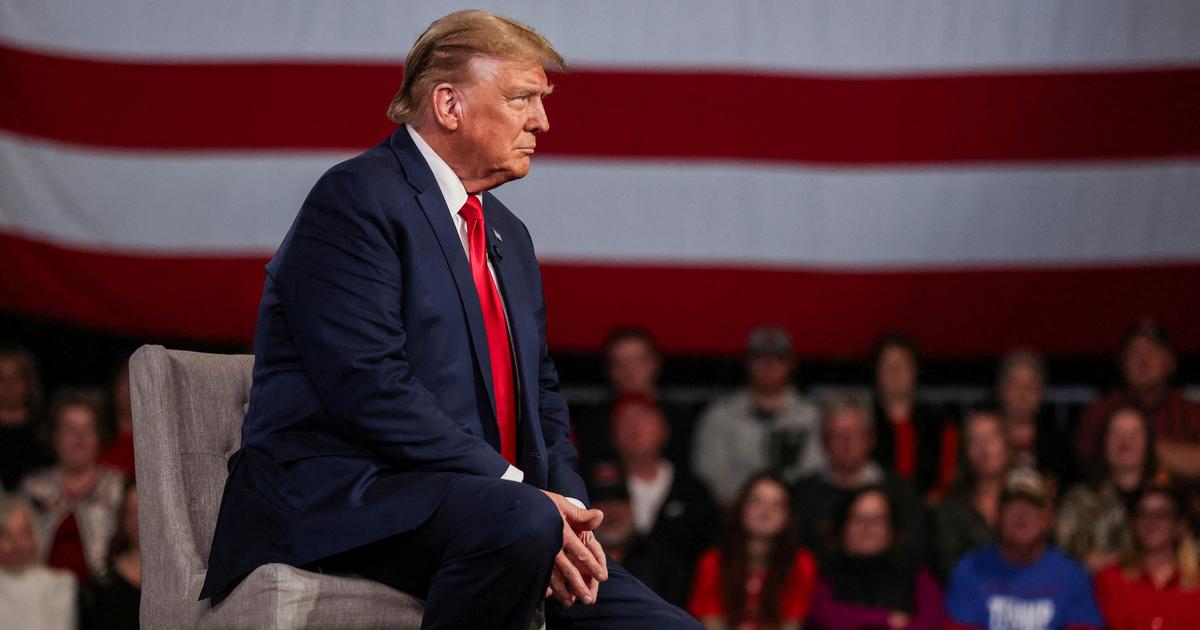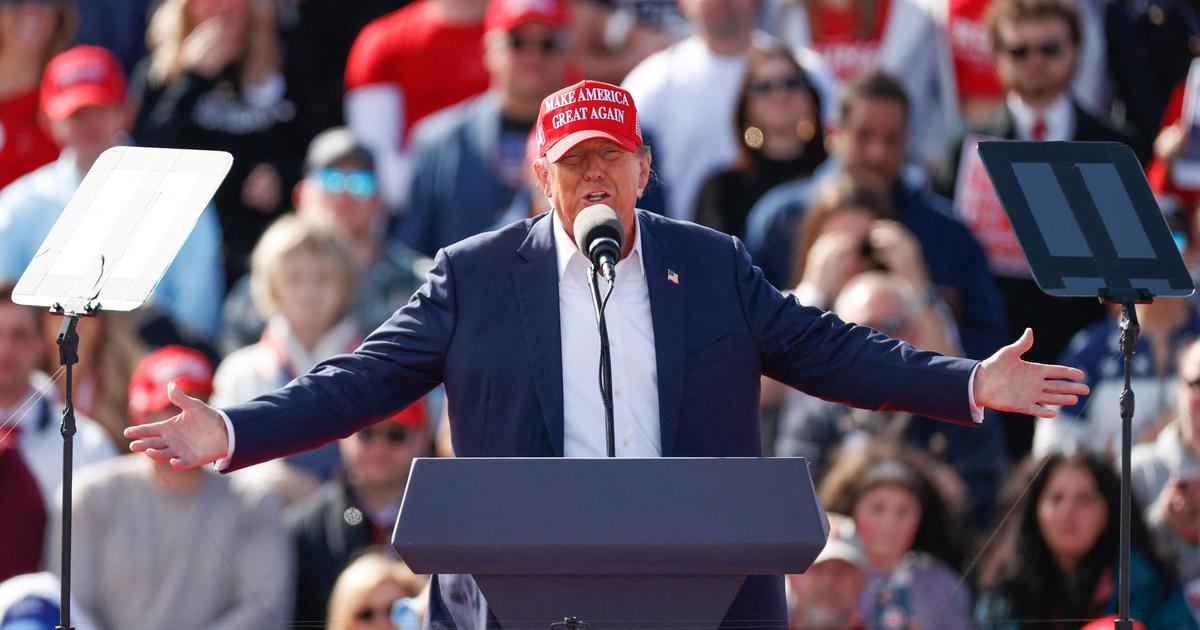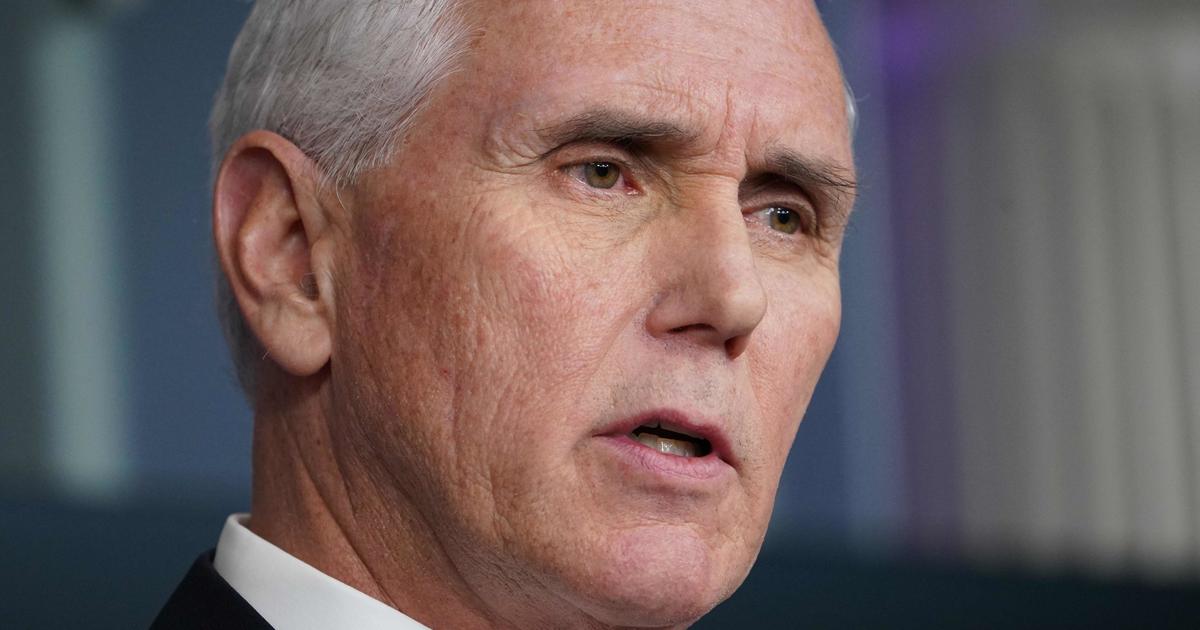Will Donald Trump go to jail?
A lawyer explains it 1:54
(CNN) --
The House committee investigating the January 6, 2021 attack on the US Capitol detailed Monday how those around then-President Donald Trump told him he had lost the 2020 election, but he refused to listen, turning instead to his attorney Rudy Giuliani to embrace false claims that the election had been stolen from him.
Monday's hearing had one fewer witness than planned, but the panel heard testimony from a former Fox News digital politics editor, a conservative lawyer, a US attorney and a Republican election official, who argued it was clear the President Joe Biden won the election and that Trump's claims about fraud made no sense.
Here are the key takeaways from the panel's second hearing this month on Trump's efforts to nullify the 2020 election and the violence on Capitol Hill on January 6.
Stepien's surprise sparks a stir, but the commission quickly adapts
The commission surprised many observers on Sunday when it announced that Trump campaign manager Bill Stepien would testify in person at Monday's hearing.
But Stepien had his own surprise on Monday morning, when he learned that his wife went into labor, so he withdrew from the audience.
This whirlwind of events forced the commission to reorganize, and they did so skillfully, albeit with a 45-minute delay.
Lawmakers and committee staff were obviously prepared with videos of Stepien's private statement.
And they played many images from his testimony on Monday, revealing new details about his conversations with Trump and how he advised the president not to prematurely declare victory on election night.
advertising
In a way, the result gave the Democratic-led commission more power to control what the public heard from Stepien.
He wasn't in the room to say his part, which could have included some defenses of Trump and some criticism of the commission.
Instead, the panel was able to pick and choose the clips of the remarks he played, and they focused like a laser on the material most damaging to Trump.
The 4 ways William Barr went from stalwart to critic of Donald Trump
They replace testimonials with long statements
Stepien's testimony was not the committee's only use of the remarks Monday.
The panel replayed lengthy portions of Trump Attorney General William Barr's statement to the committee, where he described in detail why Trump's fraud claims were "false" and why he has seen nothing since to convince him that there was fraud.
"There was never an indication of interest in what the real facts were," Barr said in the video of his statement played Monday.
"I felt kind of demoralized, because I thought, 'Hey, if you really believe this stuff, you've lost touch with... you've drifted away from reality if you really believe this stuff.'"
The commission did not invite Barr to testify publicly at Monday's hearing, but the minutes of his deposition that were reproduced made it appear at times that he was there.
The video depositions also gave the commission the opportunity to show the testimony of other members of Trump's inner circle, including Trump's daughter, Ivanka Trump, and his son-in-law, Jared Kushner, without having to bring them in to testify.
And by showing only the video statements, the commission controls which excerpts are aired.
The hearing is illustrating the key role Barr played in setting the tone for the so-called "Normal Team," the group of White House and campaign officials who were trying to advise Trump that claims of fraud were false.
It's not for lack of trying to find the fraud.
Weeks earlier, Barr had issued a controversial memorandum that allows prosecutors to examine allegations of electoral crimes even before the votes are certified.
Barr's move had prompted the resignation of a top Justice Department public integrity official.
Barr looked for the fraud and did not find it.
Former President Donald Trump appears on a screen during the hearing of the select committee investigating the January 6 insurrection at the US Capitol.
Barr becomes the "quintessential debunker"
Democrats reviled Barr while he was in office, accusing him of exercising Justice Department powers to do Trump's bidding, undermining the Russia investigation and pushing right-wing conspiracy theories.
But in the last two weeks, Barr has become something of a new hero for liberals, for aggressively debunking and condemning Trump's lies about the 2020 election.
The Democratic-led commission has produced more clips of Barr's testimony than of any other witness so far, interviewing more than 1,000 people as part of its year-long investigation.
These clips have established Barr as the highest-ranking Trump administration official to assert the legitimacy of the election results and debunk Trump's relentless effort to claim the election was tainted by fraud.
During Monday's hearing, Barr debunked specific Trump-backed claims about illegal "vote seeding" in Detroit, nationwide vote rigging by Dominion with its voting machines, and other conspiracy theories.
Without being asked, Barr even went out of her way to criticize "2,000 Mules," the film created by right-wing activist Dinesh D'Souza, a convicted felon who claims the 2020 election was stolen.
(In a statement excerpt played Monday, Barr laughed at the film, saying he was "completely lacking" in evidence.)
Barr called the theories Trump supported "idiotic" and "amateur" and "far from reality."
This rhetoric is surprisingly close to what top Democrats have said all along about Trump's fraud claims.
To be clear, Barr remains a hard-line conservative.
Just a few weeks ago, he made several false claims in a Fox News interview about the Trump-Russia investigation, endorsing Trump's baseless claims that the entire investigation was a "hoax" fabricated by Democratic operatives and the FBI.
The commission argues that Trump spread the fraud claims in bad faith after being personally told they were not legitimate.
One of the main areas of interest from Monday's hearing was to underscore the idea that Trump and some of his allies continued to spread false claims of voter fraud after being personally told they were not legitimate.
The commission argued that Trump was repeatedly told by his own high-level officials, including Barr and Stepien, that the myriad of fraud claims he was pushing were baseless and certainly not evidence that the election had been stolen.
ANALYSIS |
The January 6 investigation faces an eternal dilemma: how to hold Trump to account
"Specifically, I talked about the Dominion voting machines, which I found to be one of the most disturbing allegations, disturbing in the sense that I saw absolutely no basis for the allegations, but they were done in such a sensational way that they were obviously influencing on a lot of people, on members of the public," Barr said during his statement, according to a video played Monday.
Yet Trump and some of his allies continued to push these false claims into January, in what the commission tried to show was a bad-faith effort to nullify the election, even though they were constantly told those claims were invalid. .
During their confrontation in the Oval Office in December 2020, Barr said Trump gave him a report that he claimed was "absolute proof" that the Dominion's voting machines had been tampered with.
Barr said the report "seemed very amateurish to me," and that he "didn't see any supporting information" for the fraud claims.
Barr would resign in December 2020 shortly after his last meeting with Trump and was replaced by Acting Attorney General Jeffrey Rosen, who also faced a similar barrage of pressure from the former president to investigate the same allegations of voter fraud. unsubstantiated that Barr had warned him about.
Coup Timeline: How Trump Tried To Weaponize The Justice Department To Nullify The 2020 Election
Ultimately, Trump considered replacing Rosen with a relatively obscure environmental lawyer, Jeffrey Clark, who had shown a willingness to pursue fraud allegations that other top officials in the department did not want.
Clark drafted a "proof of concept memorandum" to nullify the 2020 election and sent it to senior Justice Department officials on December 28, 2020, two weeks after Barr resigned.
That memo relied heavily on many of the same debunked fraud claims that Trump had already been told were without merit.
At the same time, Trump allies were pressuring the Justice Department to take Trump's false claims about election-stealing to the Supreme Court in an effort to prevent results from several key states from being counted.
The brief sent to Rosen and other top Justice Department officials by Trump's White House personal assistant cited the same report on Michigan voting machine irregularities that Barr had told Trump was "amateur" and it did not include any supporting information.
The commission listens to a video of former Attorney General William Barr at a House select committee meeting to reveal its findings from a year-long investigation.
The commission focuses on the "Normal Team" in the face of the confrontation with Rudy
The commission focused Monday on testimony that distinguished between two groups advising Trump in the days after the election: the so-called "Normal Team" and those with Rudy Giuliani pushing unfounded claims of voter fraud.
"We called them more or less my team and Rudy's team," Stepien said in the deposition video played by the commission.
"I didn't mind being characterized as part of the Normal Team."
The commission traced the divide back to election night, when Stepien and others were telling Trump it was too early to declare victory while Giuliani was telling him to do so.
"The president didn't agree with that. I don't remember the exact words. He thought he was wrong. He told me," Stepien said of a conversation with Trump on election night.
"And that he was going to go in a different direction."
The commission worked hard to undermine the wild claims Giuliani and Sidney Powell were making about vote swapping and foreign interference, all of which were false.
They showed videos of Giuliani and Powell's statements juxtaposed with officials like Barr and Stepien saying the claims made no sense.
The commission even mocked Giuliani and his state of mind on election night, playing a video of Trump campaign spokesman Jason Miller's statement that Giuliani "had had too much to drink."
"I mean, the mayor was definitely intoxicated," Miller said.
"But he didn't know his level of intoxication when he talked to the president, for example."
Commission reveals details of campaign finance investigation
One of the key details the January 6 commission revealed during Monday's hearing was how Trump's lies about the election turned into millions of dollars in fundraising for the Trump campaign and the Political Action Committee that created after the elections.
The panel made the case that Trump's false claims about voter fraud dovetailed with his campaign's fundraising effort, which resulted in $250 million in donations to Trump and his allies, including requests for a election defense officer", which did not exist.
"The 'Big Lie' was also a big scam," Rep. Zoe Lofgren, a California Democrat, said during Monday's hearing.
During the commission's investigation, he went to court to try to get financial documents, such as bank records, related to January 6.
Monday's hearing was the first indication of how the panel plans to use those records in its hearings.
However, the commission did not reveal many details about the financial documents it had obtained, and more could be revealed in future hearings.
Commission links fraud to violence
After a two-hour hearing focused on debunking Trump's claims about the election, the commission ended its second hearing by returning to the violence that occurred on Capitol Hill on Jan. 6.
Committee Chairman Bennie Thompson released a video showing that those who came to Washington on Jan. 6 and stormed the Capitol did so convinced of election lies.
"We know they were there for Donald Trump. Now we hear some of the things they believed," said Thompson, a Democrat from Mississippi.
In the video, Trump supporters said they believed the unsubstantiated claims about Dominion software and how Trump's votes were not counted.
"I did my early vote, it went well except you can't really trust the software, Dominion software all over the place," said one person.
The return to violence on Capitol Hill is a theme likely to continue through the series of initial hearings detailing how Trump sought to overturn his electoral loss in the run-up to Jan. 6, including hearings scheduled for this week on the campaign. Trump's pressure against the Department of Justice and his Vice President Mike Pence.
Trump reacted approvingly to chants of "hang Mike Pence" by agitators on January 6
Assault on the Capitol

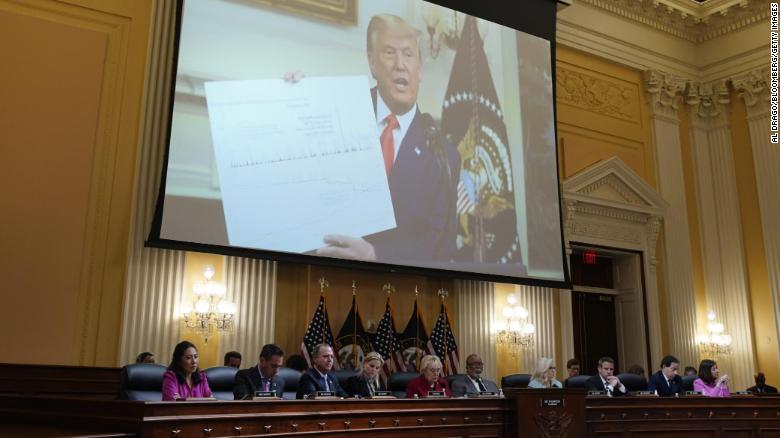
/cloudfront-eu-central-1.images.arcpublishing.com/prisa/UAEV4PQKWFSS6AZSG2N7HWOKZI.jpg)
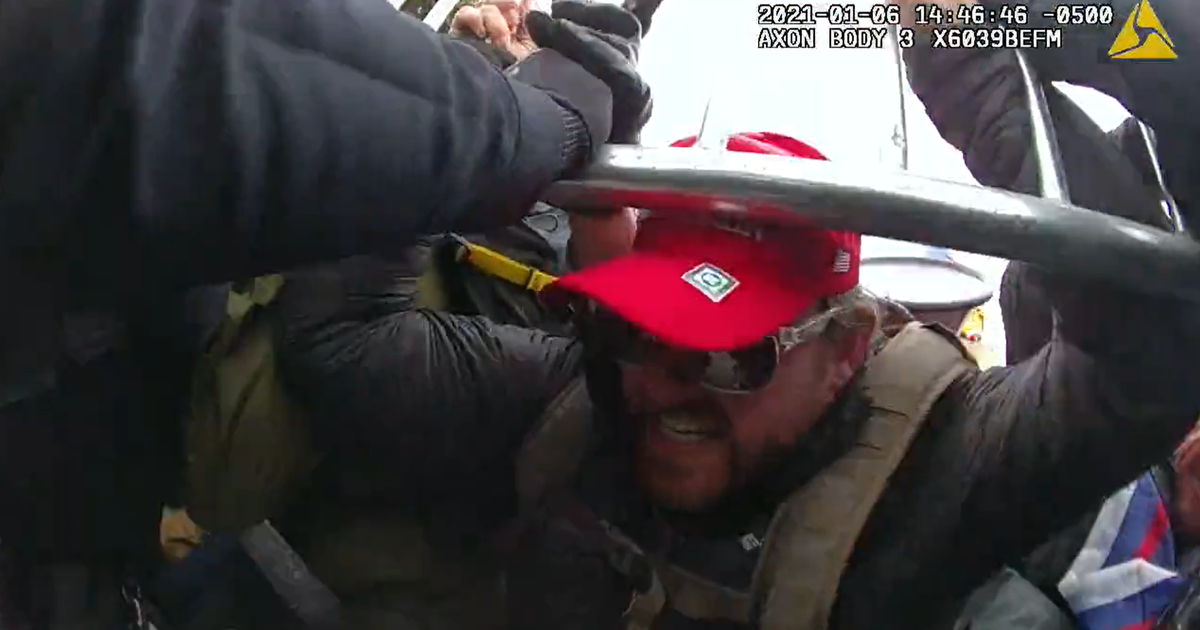
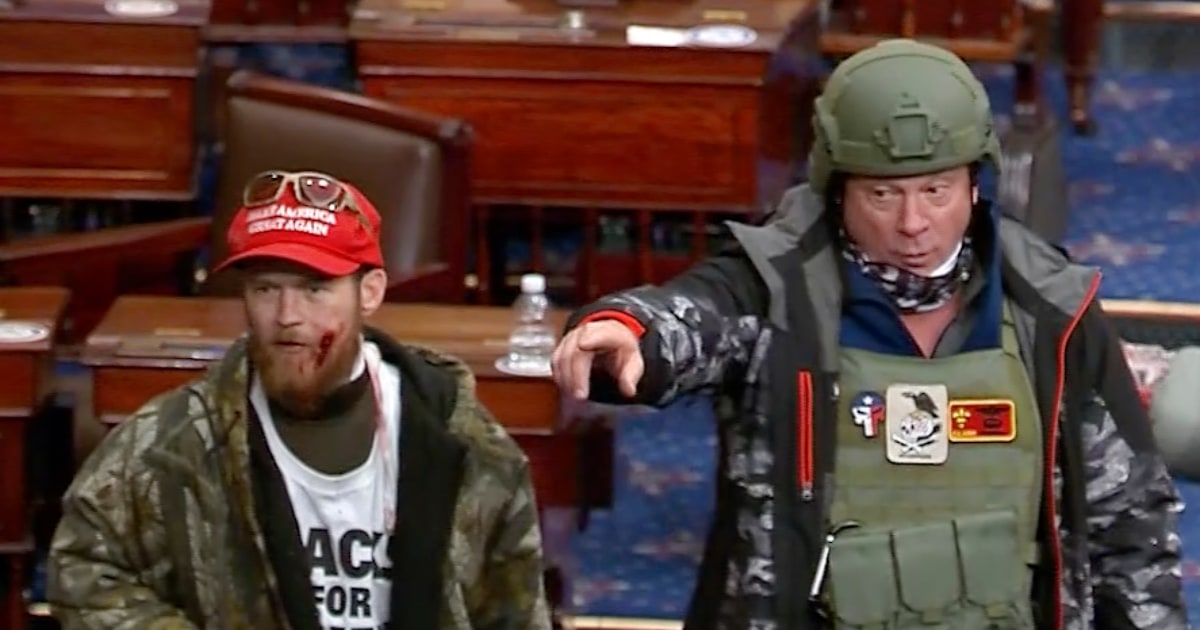
/cloudfront-eu-central-1.images.arcpublishing.com/prisa/OADNJHA33STDSSDCLLQNLNFBWQ.jpg)
